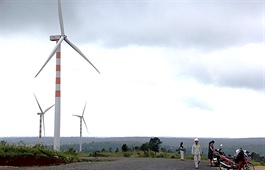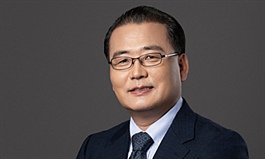Japan’s health names latch onto Vietnam
Japan’s health names latch onto Vietnam
More Japanese pharma and healthcare companies are heading to Vietnam as drug demands in the local lucrative market are on the rise.

Vietnam’s healthcare expenditures reached around $17 billion in 2019, photo Le Toan
|
The second-largest pharmaceutical company in Japan, Daiichi Sankyo Co., Ltd., has entered a licence agreement with Mitsubishi Tanabe Pharma Corporation to register and launch edaravone brand Radicava in Vietnam. The medication treats patients with amyotrophic lateral sclerosis and helps with recovery from a stroke.
Yukinori Tominaga, general director of Daiichi Sankyo Vietnam Co., Ltd., told VIR, “We are going to provide more access to new medications in order to increase options for Vietnamese doctors to improve the quality of life in Vietnamese people.”
The agreement is one of several plans by Daiichi Sankyo for Vietnam in 2021. It aims to contribute to the enrichment of quality of life in the country through the innovative pharmaceuticals from Daiichi Sankyo and external resources, as the Mitsubishi Tanabe case, in order to address diverse medical needs.
Having established a representative office in Ho Chi Minh City in 2014 to provide support activities for the sale and promotion of its pharma products, last year Daiichi Sankyo strengthened its presence in Vietnam by announcing the establishment of its Vietnamese arm as a wholly-owned subsidiary to conduct sales activities. This is to better respond to the changing business environment of the pharmaceutical industry in Vietnam and to strengthen its business operations, focusing on new products.
The Tokyo-based company researches in the field of innovative drugs, with subsidiaries operating worldwide. In fiscal year 2019, Daiichi Sankyo generated a revenue of almost ¥982 billion ($9.46 billion), up from approximately ¥930 billion ($8.96 billion) in the previous fiscal year.
Tominaga admitted that during 2020 with the global health crisis, Daiichi Sankyo has suffered some negative impacts especially in primary care, but avoided significant impacts throughout the year.
Daiichi Sankyo is one of several Japanese companies in the health sector with more presence in Vietnam, which is deemed a safe place to do business and which has growing demands for innovative medicines and high-end services, in a move to diversify their supply chains.
According to a representative from the Japan External Trade Organization (JETRO), besides traditional investment sectors like manufacturing, Japanese investors are also grasping onto other sectors such as healthcare, clean energy, and customer services.
As demonstrated in the list of 30 Japanese companies planning to move from China to Vietnam, the Philippines, Malaysia, Thailand, and Laos announced last year by JETRO, half of those will shift to Vietnam, with the majority operating in the health sector. They include names like Inoue Iron Works, Able Yamauchi, Showa, Techno Global, Hashimoto Cross, and Matsuoka. They specialise in pharmaceutical manufacturing equipment, medical gloves, masks, and other medical clothing among others.
Matsuoka Corporation, which produces protective clothing for the health sector, plans to invest ¥3 billion ($28 million) in An Nam Matsuoka Garment Company, its Vietnamese manufacturing unit, to start production of protective wear and other items in the next few months.
Elsewhere, seeing growth potential in Vietnam, Taisho Group, one of the five largest pharmaceutical firms in Japan, increased its ownership in Hau Giang Pharmaceutical JSC, the biggest publicly-traded drugmaker in Vietnam, to 50.78 per cent in 2019 as a way to deepen its footprint there.
Similarly, Nipro Pharma Corporation – Japan’s biggest prescription drug contract manufacturer – is expanding its operations in Vietnam with a new project worth $300 million in Saigon Hi-Tech Park (SHTP) after investing $150 million in the first plant in the northern port city of Haiphong.
A source from SHTP told VIR that Nipro is completing procedures to enlarge its facility by increasing the investment capital by about $270 million.
Experts forecast that private domestic and foreign investment in the Vietnamese health sector will be on the rise as the state has plans to divest its stake in a number of powerful pharma firms, including leading pharma firms Vinapharm and Traphaco. The sector’s existing challenges, including hospital overloads and downgrades, also bring about chances for financiers to venture further into.
According to data researchers Fitch Solutions, the country’s total health expenditure was about $17 billion in 2019, or 6.6 per cent of the country’s GDP. The company also projects that the figure will reach $23 billion in 2022 with compound annual growth rate of 10.7 per cent.

























